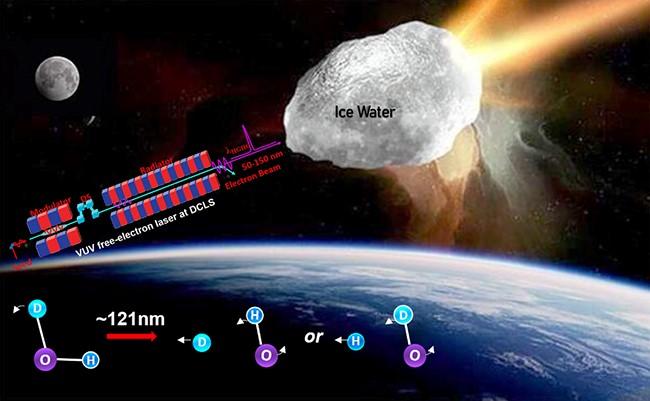
Credit: DICP
Recently, a research group led by Prof. YUAN Kaijun and Prof. YANG Xueming from the Dalian Institute of Chemical Physics (DICP) of the Chinese Academy of Sciences revealed strong isotope effects in photodissociation of the water isotopologue (HOD) using the Dalian Coherent Light Source.
Their findings were published in Science Advances on July 23.
“Our experimental results illustrate dramatically different quantum state population distributions of OH and OD fragments from HOD photodissociation. The branching ratios of the H+OD and D+OH channels display large wavelength-dependent isotopic fractionation,” said Prof. YUAN.
Because water is one of the most abundant species in the solar nebula, photodissociation of water and its isotopologue by solar vacuum ultraviolet photons may be an alternative source of the D/H isotope heterogeneity, and this effect must be considered in photochemical models.
The photochemical processes identified in this work may vary the D/H isotopic ratios in the inner and outer regions, and/or in different periods of the solar nebula, which may cause the D/H isotope heterogeneity in the solar system.
###
This research was supported by the Strategic Priority Research Program of the Chinese Academy of Sciences, Chemical Dynamics Research Center, and the National Natural Science Foundation of China.
Media Contact
Jean Wang
[email protected]




